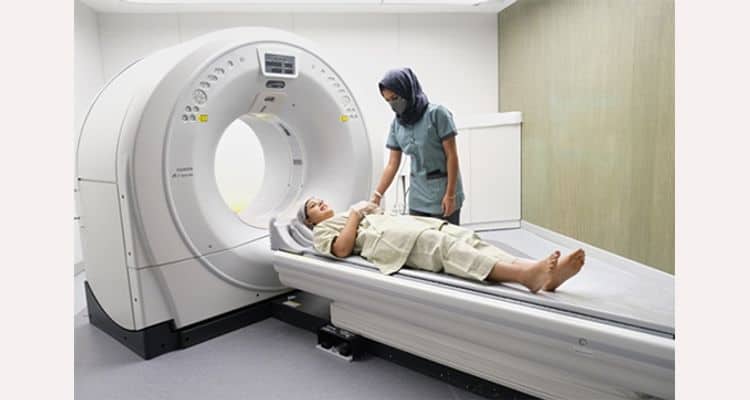This project will be conducted at the “NURA,” a health-screening center that Fujifilm opened in India in February this year
Fujifilm has launched a project for verifying the effectiveness of its AI technology that assists diagnostic imaging in India as a new initiative in the company’s health screening service business for emerging countries.
This project will be conducted at the “NURA,” a health-screening center that Fujifilm opened in India in February this year. It has been selected as one of the “Asia Digital Transformation Promotion Projects” by Japanese Ministry of Economy, Trade and Industry in recognition for its potential in contributing to solving social issues in the fast-growing emerging countries in Asia.
In February this year, Fujifilm commenced its health screening service business in emerging countries, and opened “NURA,” its first health screening center focusing on cancer screening in Bengaluru, India. NURA offers Fujifilm’s medical devices, capable of providing high-definition diagnostic images, as well as medical IT systems based on AI technology to support doctors carry out screening and tests for diagnosing cancer and lifestyle diseases. The center has provided screening to people of all age groups, ranging from those in their 20s to 80s, including local residents around Bengaluru and workers of nearby companies / medical facilities. Its ability to offer speedy and high-quality services has received high acclaim.
The latest project, launched this time to be completed by January 2022, examines chest CT scan data of some 2,000 NURA visitors to verify that medical diagnosis based on the diagnostic imaging support function using AI technology can effectively prevent doctors from overlooking legions or improve the speed of interpreting images. More specifically, doctors’ interpretation of CT scan data, recorded at NURA and examined with the support of the AI technology, is compared against different doctors’ interpretations, made without the support of the AI technology in order to analyze diagnostic results and differences in interpretation speed.
The analysis results are used to verify the effectiveness of the AI technology in preventing oversight and shortening the time required for doctors’ interpretation workflow as a whole. At the same time, the project also examines whether it is possible to deploy health-screening services effectively with limited medical resources in emerging countries. Efforts will be also made to develop new AI technology that assists the detection of abdominal abnormality (kidney, liver, and gallbladder) from CT scans, to be offered as a health screening service in emerging countries.
- Advertisement -


